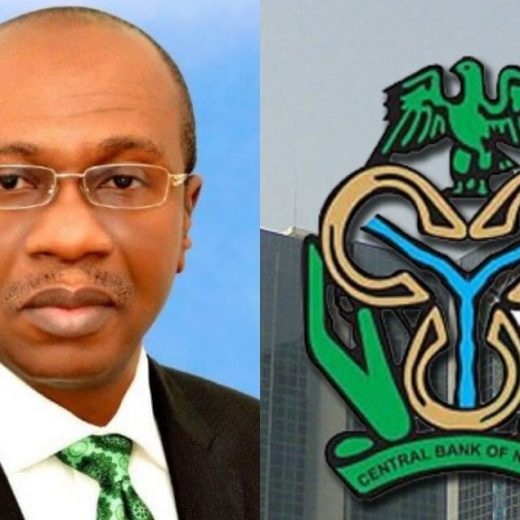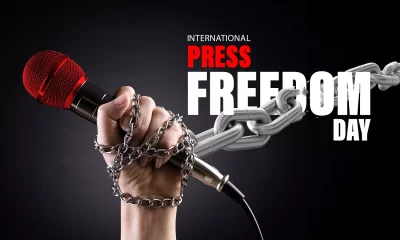Business
Analysis: Economic challenges and dynamic policies of CBN
Published
3 years agoon
By
Arize Nwobu
The challenges of the Nigerian economy seems to be intractable due to the following factors, namely, over reliance on oil which discouraged effective diversification, committal of the ‘original sin’, which is the inability to issue debt in local currency, and reliance mostly on external grants and concessional loans to fund government deficits and capital spending which tend to pass currency risk to consumers.
Others factors are, the effects of the Structural Adjustment Programme (SAP) of 1987, which led to exchange rate distortions and weakening of the naira, corruption and despoliation, infrastructure deficit, and the dominance of bank-based financing system over market-based financing system, which stunted the deepening and under-utilization of the mechanism of the capital market needed for greater economic growth and development.
Others include smuggling and wide scale sabotage across sectors, un-patriotism and covetousness especially by the political class and their cronies, and hitherto, a lack of defined growth strategies
The Central Bank of Nigeria (CBN) is pivotal in managing the economic challenges, and has demonstrated dynamism in solutions evolution towards achieving economic stability and prosperity. CBN initiates both monetary and development financing policies based on the fundamentals of the economy, priorities, exigencies and global practices. Going forward, the Bank also evaluates and modifies its policies when it is necessary, based on impact analysis of both their intended and unintended consequences.
To checkmate inflation, CBN has consistently raised the Monetary Policy Rate (MPR) in accordance with global practices. As CBN Governor, Godwin Emefiele noted, ‘’the tested monetary policy theory is that the easiest way to tame inflationary pressure is to raise rates. He further noted that ‘’CBN research has shown that once inflation trends above 12.5 per cent or 13 per cent, it will retard growth. So it is difficult for us, with all data available not to go in a very aggressive way.’’
Emefiele said that as inflation continued upwards, the Monetary Policy Committee would hike rates to tame the pressure, which explains the consistent increase in the MPR from 16.5 per cent to 17.5 per cent, and most recently to 18 per cent.
Generally, central banks have a phobia for inflation. One of the major causes of inflation is the circulation of excessive quantum of money in the economy, thus, the need for the circulation of the appropriate quantum.
CBN noted that the quantum of money in circulation rose from N1.4 trillion to N3.2 Trillion in seven years which is considered to be excessive. The Bank sucked in some of the excessive quantity to reduce the cyclonic circulation of money in the system, and consistently increased the MPR with the aim of de-escalating inflation.
The apex bank has also been dynamic in addressing the challenge of foreign exchange, which is the back bone of international trade and a key determinant of critical parameters. The foreign exchange challenge is intractable, but CBN has consistently evolved different and creative policy techniques which include various variants of flexible regimes which aimed at determining an appropriate exchange rate and ensuring its stability. Some of the past policy techniques included the Second-Tier Foreign Exchange Market (SFEM), which co-existed with the First-Tier market operated by the government for debt servicing and public sector letters of credit. Others were the Autonomous Foreign Exchange Market (AFEM), and later, the Dutch Auction System (DAS) which transformed the Whole Dutch Auction System (WDAS).
Fast forward to 2016 during the recession, foreign exchange was very scarce because of the drastic fall in global oil price and depletion of foreign reserves. CBN responded with a robust policy which enabled it to sustain the injection of dollars into the economy. It introduced the Investors’ and Exporters’ FX Window, which created a magical effect and triggered energetic inflows to the economy.
The policy was applauded by the World Bank, Lagos Chamber of Commerce and Industry and other prominent organizations and stakeholders. Going forward, the Bank also evolved other policies for demand and supply management of foreign exchange. They include the promotion of exports, the Naira for Dollar policy and halting the supply of dollars to Bureau de Change, and instead, supplied to banks that would sell directly to customers.
CBN later evaluated and modified the policy and stopped the sale of foreign exchange to banks. ‘’The era is coming to an end when because your customers need $100 million in foreign exchange or $200 million, you now want to go to the CBN and pack all the dollars.’’
Banks were encouraged banks to source foreign exchange from exports, and promised to funds the export proceeds for banks at five per cent and with a rebait so that they could sell to their customers.
The dynamic policies of CBN also helped to insulate the economy from the devastating effects of COVID-19 pandemic which wreaked unprecedented economic damages in global markets and economies. To create the needed buffer against the COVID-19 pandemic and strengthen the economy, CBN provided a combined stimulus package of about N3.5 trillion in targeted measures to households, businesses, manufacturers and health care providers.
The global development buttressed CBN’s earlier message on the need to look inward, and which prompted the Bank to evolve necessary development financing policies which aim at positioning the country to become a self-sufficient food producer and to dampen the effects of exchange rate on local prices.
Nwobu, a Chartered Stockbroker and Business Journalist wrote via [email protected] Tel: 08033021230
Trending

 Health1 week ago
Health1 week agoSinger’s death sparks doctor’s takedown of snakebite myths, exposes public health gaps

 Comments and Issues5 days ago
Comments and Issues5 days agoIfunanya died in the capital city—what hope is there for rural Nigerians?

 Education6 days ago
Education6 days agoOgun students call for increased funding to improve tertiary institutions

 Comments and Issues6 days ago
Comments and Issues6 days agoThe silent press and the silent siege

 Football1 week ago
Football1 week agoBarcelona moves to secure Rashford permanently, target Romero

 Crime1 week ago
Crime1 week agoGunmen kill Anambra community leader in suspected cult revenge attack

 Football6 days ago
Football6 days agoAntony strikes as Real Betis exact revenge on Atletico Madrid

 Energy6 days ago
Energy6 days agoNCDMB introduces stricter guidelines to eliminate unqualified firms from oil contracts

